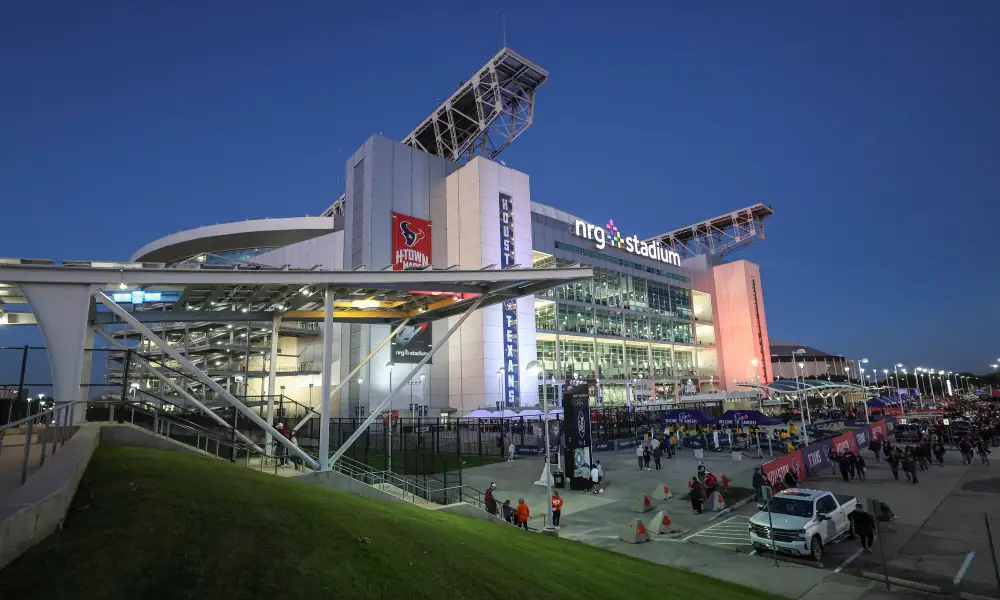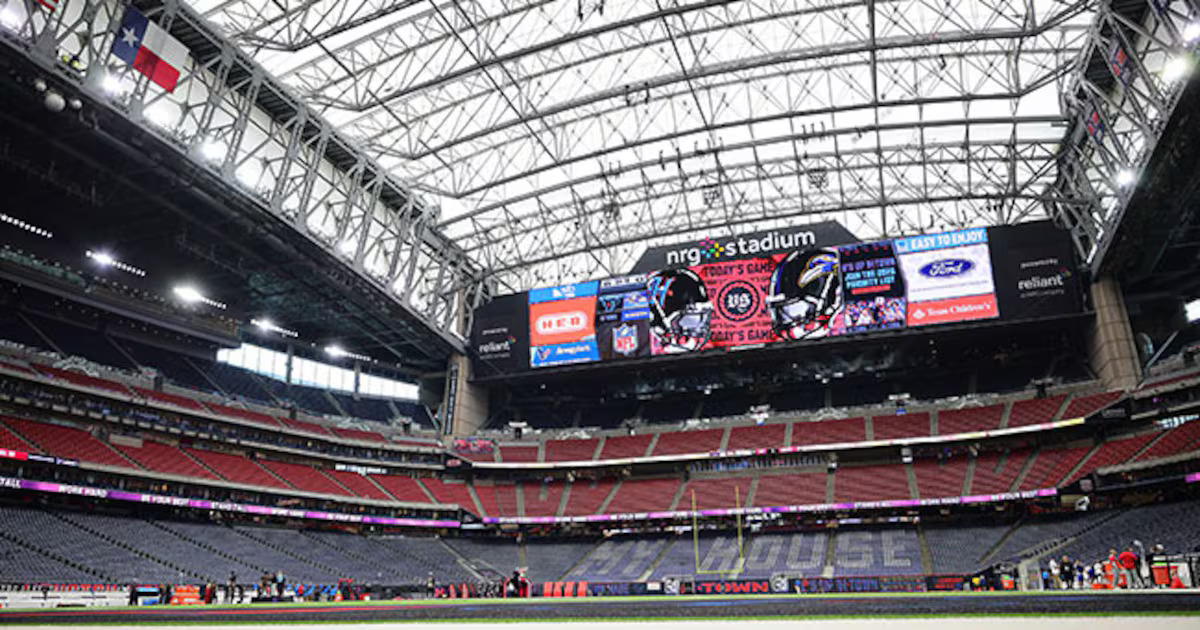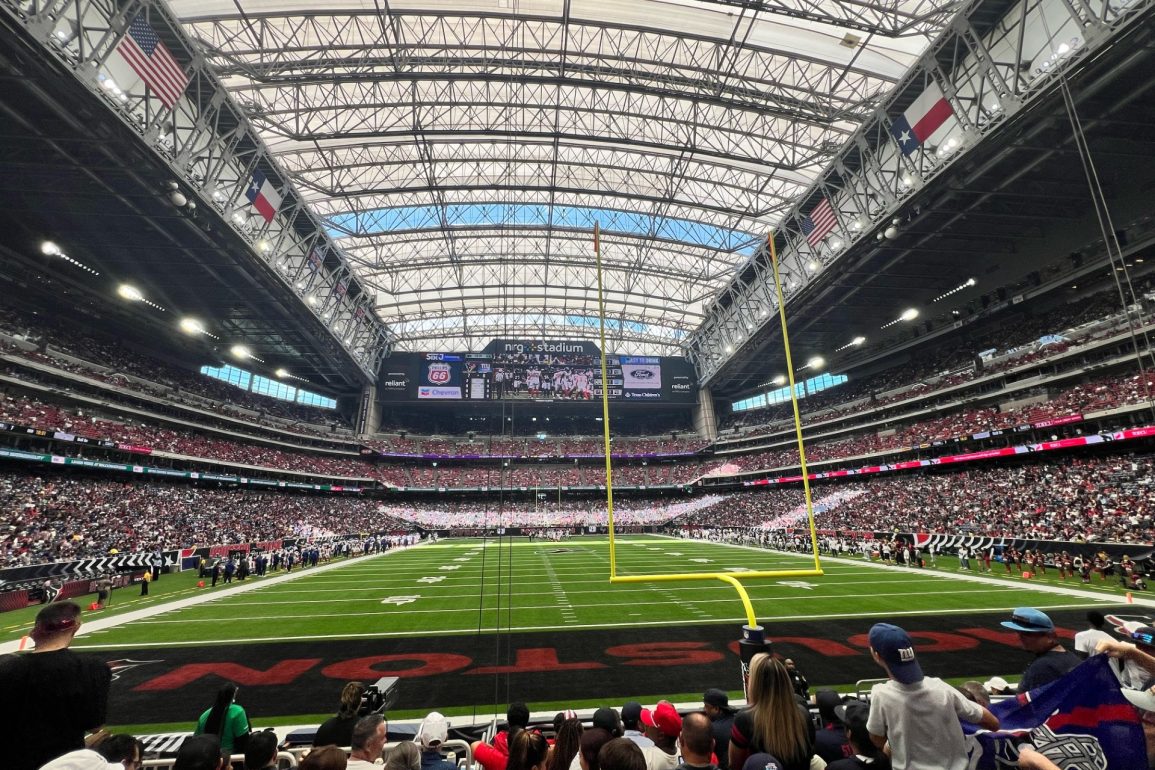The Houston Texans recently appointed Mike Tomon as their new team president, highlighting his extensive background in stadium development. Tomon, formerly with Legends, has been involved in major NFL stadium projects in Los Angeles, Las Vegas, and Buffalo. His expertise is particularly relevant as the Texans negotiate a new lease for NRG Stadium, their home since 2002. While discussions primarily focus on renovations, the possibility of a brand-new stadium looms as a potential alternative.
NRG Stadium, built with public funds, has been evaluated as being in average or below-average condition compared to other NFL venues. Years of deferred maintenance have resulted in a $1.4 billion estimated cost for necessary upgrades over the next 30 years. These costs, combined with the Texans’ desire for premium features such as expanded luxury suites and improved fan experiences, raise the question of whether a full rebuild would be more cost-effective than a renovation.
While the Texans have not formally proposed a new stadium in their lease negotiations, financial considerations may drive such a decision. If renovation costs, combined with enhancements desired by the team, approach the price of constructing a brand-new facility, a new stadium could be seen as the more logical investment. This decision will also be influenced by the Houston Livestock Show and Rodeo, which shares the stadium, and Harris County, which owns the facility.

Modern Stadiums Focus on Luxury, But Funding Challenges Loom for Houston
Modern stadiums prioritize different amenities compared to those built decades ago. While retractable roofs and roll-in turf were once major selling points, today’s stadiums emphasize larger luxury suites, improved club seating, and expansive concourses with bars and restaurants that offer better viewing experiences. Retrofitting NRG Stadium to incorporate these modern features could be costly and logistically challenging, making a new stadium an attractive alternative.
Building a new stadium presents significant financial challenges, particularly for taxpayers. Harris County and Houston are still paying off the debt from constructing NRG Stadium, along with other sports venues like Toyota Center and Minute Maid Park. The Harris County-Houston Sports Authority still owes $1 billion in principal debt, with payments extending until 2056. Given this financial burden, the prospect of public funding for a new Texans stadium may be met with strong resistance.
The Texans currently enjoy a team-friendly deal at NRG Stadium. Unlike other Houston sports franchises like the Rockets and Astros, the Texans are not responsible for most maintenance costs, which are covered by the county. Additionally, financial audits reveal that the Texans receive more in tax rebates than they pay in rent, effectively allowing them to play at NRG at little to no cost. This raises further concerns about whether taxpayers would support additional public funding for a new stadium.

Houston Weighs Stadium Plans Amid NFL Incentives and Economic Debate
The NFL encourages teams to build new stadiums by providing funding assistance through its G-5 stadium loan program, which allows teams to borrow up to $300 million for construction. The league also incentivizes new stadiums by awarding Super Bowls to cities with recently built or renovated venues.
Houston has expressed interest in hosting another Super Bowl but has not been awarded one since 2017. The Saints’ successful Super Bowl bid this year was largely due to a $560 million renovation of the Caesars Superdome, illustrating the NFL’s preference for updated stadiums.
Supporters of a new stadium argue that it would boost Houston’s economy by attracting major events like the Super Bowl. However, economic experts, such as J.C. Bradbury of Kennesaw State University, challenge these claims, stating that public subsidies for stadiums rarely provide a significant financial return.
He compares new stadium construction to unnecessary luxury spending, driven by team owners rather than genuine infrastructure needs. Critics argue that cities often inflate projected economic benefits to justify public investment in stadium projects.
The Texans’ situation is part of a broader trend among NFL teams with aging stadiums. Several franchises, including the Tennessee Titans and Cleveland Browns, are actively pursuing new stadiums with substantial public funding. Others, like the Patriots and Seahawks, have opted for renovations.
As Houston navigates its own decision, local officials must weigh the financial and political challenges of funding a new stadium. Any move toward construction will likely face scrutiny, particularly from taxpayers still paying for existing stadium debt. Whether through renovation or rebuilding, the future of Texans football in Houston will be shaped by negotiations over the next few years.







